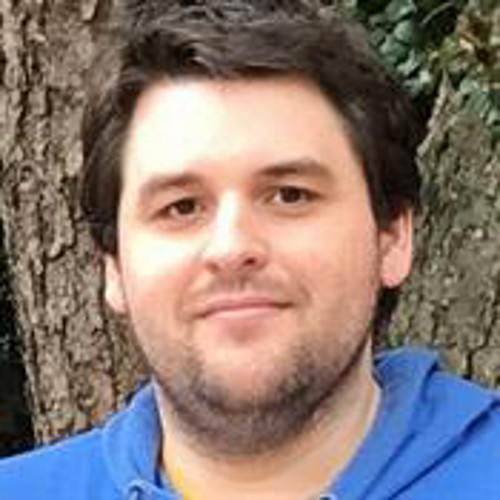Daniel Ashley, Ph.D.

Biography
Faculty Member Since 2020
Daniel Ashley, Ph.D is an Assistant Professor for Chemistry and Biochemistry.
Daniel Ashley, Ph.D., is from southwestern Virginia and originally entered college at Virginia Tech to become a veterinarian. As he worked through college, these plans changed as he fell head over heels in love with chemistry. The intrinsic beauty of molecules and how electrons are distributed throughout them was something that fundamentally resonated with him.
Dr. Ashley eventually realized that his love for chemistry and for teaching meant he was destined to become a chemistry professor so he could share his love of chemistry and learning with others. Many years of graduate school and postdoctoral research finally led to him becoming a professor at Spelman College. Dr. Ashley is excited to be a member of Spelman College and looks forward to helping train the next generation of talented scientists and professionals.
On a personal note, Dr. Ashley's chief love in life, besides chemistry, is animals. He loves all animals of every shape and size, but especially birds. If you ever want to talk about roosters and parrots, he will always be happy to listen.
Education
- Ph.D, Indiana University
- M.A., Johns Hopkins University
- B.A., Virginia Polytechnic Institute
Courses Taught
- SCHE 111
- SCHE 111L
Research Interests
Research in the Ashley Lab focuses on inorganic chemistry, especially coordination chemistry. We are a computational chemistry group, which means we don’t perform “wet” chemical experiments in a traditional chemistry lab, but rather we use high-powered supercomputers to solve advanced quantum chemical equations which allow us to model the behavior of the molecules we are interested in. This behavior can include (but is not limited to) geometric structure, electronic structure (bonding properties), spectroscopic properties, and chemical thermodynamics/reactivity.
In terms of specific chemistry, there are two main areas that we are focused on exploring:
- Spin-crossover behavior of transition metal complexes: Many transition metal complexes possess electronic states that differ in the number of unpaired electrons (“spin states”) that are close in energy to each other. This often means that changes in temperature or pressure can cause the molecule to “flip” from one spin state to another. Excitingly enough, these different spin states often have significantly different chemical properties, such as different metal-ligand bond lengths or different reactivities. Spin-crossover can therefore be used to induce dramatic and useful changes in chemical behavior by altering external thermodynamic conditions.
- Single chain nanoparticle (SCNP) metallopolymers: SCNPs are molecular chains that can form intrachain linkages via covalent bonds, coordinative bonds with transition metals, hydrogen bonding, or other nonbonding interactions. These intrachain linkages cause the polymer to fold in on itself numerous times, which will ultimately dictate its three-dimensional shape and properties. This is analogous to a single chain polypeptide which has arranged itself to form a protein, which suggests that SCNPs could possibly be designed to perform the complex functions proteins are capable of, but not be limited by a polypeptide framework and/or the known fragility and difficult synthesis of proteins. Metal-containing SCNPs have already been shown to be effective as catalysts for useful chemical transformations, suggesting they could be a source of ‘artificial enzymes’ in the future.
Students who are interested in doing computational inorganic chemistry research in a fun and friendly environment should contact Dr. Ashley. Students of all levels and chemistry backgrounds are welcome; you do not need to have extensive computer/math/coding/quantum mechanics/inorganic chemistry experience. There is no better way to learn these skills than in the research lab itself!
